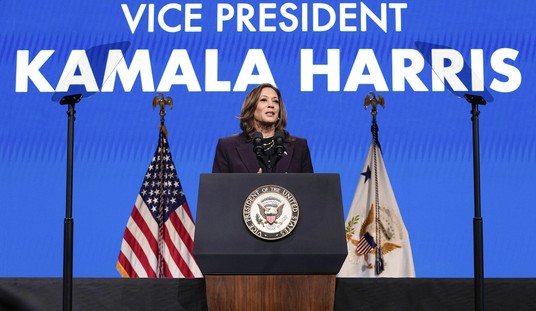Former Secretary Clinton use of private email for her state correspondence with foreign dignitaries and persons removed her actions from public scrutiny and political accountability, converting her State Department post into a private diplomatic backchannel. Her actions have the potential to be among the most dangerous precedents for use of executive power.
According to Article II of the Constitution, the “president” is one person who is vested with “[t]he executive power,” and who delegates such power to his agents. Our Framers did not insert that clause just to empower a president; they did it to make the president and his agents, such as the Secretary of State, politically accountable to the people for their decisions and action. They knew that the stakes are high for maintaining public accountability—especially in war-making and foreign affairs—and that those stakes are usually American lives and property.
The damage that a major American public figure can perform by privately backchanneling in diplomatic affairs is best illustrated by historic example. In 1968, presidential candidate Richard M. Nixon’s campaign colluded with the South Vietnamese President Nguyen Van Thieu to sabotage the Paris Peace Talks, extending the war in Vietnam for several years. Americans died needlessly in Vietnam because Nixon was capable of thwarting official American diplomacy through a private backchannel to the South Vietnamese in order to make his political opponents seem unable to secure “peace with honor.”
The country adopted the Federal Records Acts in 1978 to ensure executive officials’ public communications would be given the “disinfecting sunlight” of public review. The Act required that presidential staff take practical steps to separate professional and personal correspondence and retain records in accord with National Archives regulations. Since 2009, the National Archives regulations implementing this law have required that “any records created on private e-mail accounts must be saved to the federal-records system.” Federal criminal law punishes the willful concealment of records as a felony with up to three years in prison and potential disqualification from holding public office. In 2014, Congress passed a law to prohibit specifically a public official from doing exactly what Clinton did, using private email for public correspondence.
Recommended
During her term, however, former Secretary of State Hillary Clinton used a private email account from a private server in her own home, ensuring that the records would never be directly subject to the Federal Records Act’s archiving requirements. Did she say something absurdly incriminating about Libya? Possibly, though it’s doubtful that she is that imprudent. Did she say something absurdly incriminating about some other disaster? Who knows. That is the sum and whole problem: Americans do not have access to the records that tell what she said. And they may never—she deleted up to 30,000 emails.
Moreover, as Judge Andrew P. Napolitano of Fox News aptly points out, the Federal Records Act is not the only issue. The American government drummed out one of our top generals for doing something which Clinton almost certainly did just by virtue of conducting business this way.
According to Napolitano, “If Clinton retained classified emails on her personal account and server, she arguably violated a statute that General Petraeus has agreed he will plead guilty to, which prohibits retaining classified information in a non-governmental, non-secure way – a misdemeanor charge.”
If the government is willing to prosecute one of the top generals for retaining classified records with his mistress, then the top diplomat should be held to the same standard—this is especially true when experts agree Clinton’s practices increased the risk of hacking or incidental classified information disclosure. The State Department initially claimed that in the four years Clinton was Secretary, she never once dealt with classified information via email. To put it bluntly, that’s preposterous, which is why the State Department has since walked back the claim.
There are times where one can reasonably understand the practical need for secrecy in negotiations, such as when the lives of soldiers overseas are at risk or if the nature of proceedings and modern international spy-craft requires a bit of hemming and hawing around the exact legal boundaries—and our officials should be given that latitude—but that is not the case we are presented with here. Americans are not presented with exceptions to the rule, but complete evasion of the rule itself.
There is no legitimate foreign affairs or governmental need to have the entirety of one’s state correspondence done through personal, private, hackable accounts. Surely, a Happy Birthday message to President Xi of China does not require that shroud of secrecy. Instead, the only thing this degree of secrecy is good for is ensuring that in the next election cycle, whatever scary things were said or done do not come back to bite.

























Join the conversation as a VIP Member